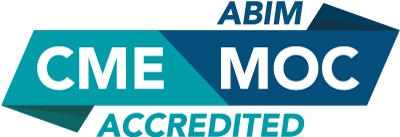|
|
Wednesday, July 1, 2020, 5:00 PM – 6:00 PM ET
Recent Advances in Medical Oncology: Prostate Cancer Faculty
Robert Dreicer, MD, MS Section Head, Medical Oncology Deputy Director, University of Virginia Cancer Center Associate Director for Clinical Research Professor of Medicine and Urology University of Virginia School of Medicine Charlottesville, Virginia Daniel P Petrylak, MD Professor of Internal Medicine (Medical Oncology) and Urology Yale University New Haven, Connecticut Christopher Sweeney, MBBS Professor, Medicine Harvard Medical School Medical Oncologist Dana-Farber Cancer Institute Boston, Massachusetts Moderator Neil Love, MD Research To Practice Miami, Florida Module 1: Role of Androgen Receptor-Targeted Therapies in the Treatment of Nonmetastatic Castration-Resistant Prostate Cancer (CRPC) — Daniel P Petrylak, MD
Module 2: Optimal Management of Metastatic Hormone-Sensitive PC (mHSPC) — Christopher Sweeney, MBBS
Module 3: Treatment Strategies for Metastatic CRPC (mCRPC) — Robert Dreicer, MD, MS
Program Overview Target Audience Learning Objectives
Competencies to Be Addressed CME Credit Form Accreditation Statement 
American Board of Internal Medicine (ABIM) — Maintenance of Certification (MOC) Please note, this program has been specifically designed for the following ABIM specialty: medical oncology. Privacy Disclosure Completion Requirements Disclosure Policy USF HEALTH CPD STAFF AND RESEARCH TO PRACTICE CME PLANNING COMMITTEE — Members, Staff, and Reviewers have no relevant conflicts to disclose. FACULTY — The following faculty (and their spouses/partners) reported relevant conflicts of interest, which have been resolved through a conflict of interest resolution process: Dr Dreicer — Advisory Committee: Astellas, Eisai Inc, Janssen Biotech Inc, Novartis, Orion Corporation, Pfizer Inc, Seattle Genetics, Vizuri Health Sciences; Contracted Research: Bristol-Myers Squibb Company, Exelexis Inc, Pfizer Inc, Seattle Genetics. Dr Petrylak — Consulting Agreements: Advanced Accelerator Applications, Amgen Inc, Astellas, AstraZeneca Pharmaceuticals LP, Bayer HealthCare Pharmaceuticals, Bicycle Therapeutics, Boehringer Ingelheim Pharmaceuticals Inc, Bristol-Myers Squibb Company, Clovis Oncology, Exelixis Inc, Incyte Corporation, Janssen Biotech Inc, Lilly, Pfizer Inc, Pharmacyclics LLC, an AbbVie Company, Roche Laboratories Inc, Seattle Genetics, UroGen Pharma; Contracted Research: Advanced Accelerator Applications, Astellas, AstraZeneca Pharmaceuticals LP, Bayer HealthCare Pharmaceuticals, Bristol-Myers Squibb Company, Clovis Oncology, Endocyte Inc, Genentech, a member of the Roche Group, Innocrin Pharmaceuticals Inc, Lilly, Merck, Novartis, Pfizer Inc, Progenics Pharmaceuticals Inc, Roche Laboratories Inc, Sanofi Genzyme, Seattle Genetics; Ownership Interest: Bellicum Pharmaceuticals Inc, Tyme Inc. Dr Sweeney — Consulting Agreements: Astellas, Bayer HealthCare Pharmaceuticals, Genentech, a member of the Roche Group, Lilly, Pfizer Inc, Sanofi Genzyme; Contracted Research: Astellas, Bayer HealthCare Pharmaceuticals, Dendreon Pharmaceuticals Inc, Janssen Biotech Inc, Pfizer Inc, Sanofi Genzyme.MODERATOR — Dr Love is president and CEO of Research To Practice. Research To Practice receives funds in the form of educational grants to develop CME activities from the following commercial interests: AbbVie Inc, Acerta Pharma — A member of the AstraZeneca Group, Adaptive Biotechnologies, Agendia Inc, Agios Pharmaceuticals Inc, Amgen Inc, Array BioPharma Inc, a subsidiary of Pfizer Inc, Astellas, AstraZeneca Pharmaceuticals LP, Bayer HealthCare Pharmaceuticals, Biodesix Inc, bioTheranostics Inc, Blueprint Medicines, Boehringer Ingelheim Pharmaceuticals Inc, Boston Biomedical Inc, Bristol-Myers Squibb Company, Celgene Corporation, Clovis Oncology, Daiichi Sankyo Inc, Dendreon Pharmaceuticals Inc, Eisai Inc, EMD Serono Inc, Exelixis Inc, Foundation Medicine, Genentech, a member of the Roche Group, Genmab, Genomic Health Inc, Gilead Sciences Inc, GlaxoSmithKline, Grail Inc, Guardant Health, Halozyme Inc, Helsinn Healthcare SA, ImmunoGen Inc, Incyte Corporation, Infinity Pharmaceuticals Inc, Ipsen Biopharmaceuticals Inc, Janssen Biotech Inc, administered by Janssen Scientific Affairs LLC, Jazz Pharmaceuticals Inc, Kite, A Gilead Company, Lexicon Pharmaceuticals Inc, Lilly, Loxo Oncology Inc, a wholly owned subsidiary of Eli Lilly & Company, Merck, Merrimack Pharmaceuticals Inc, Myriad Genetic Laboratories Inc, Natera Inc, Novartis, Oncopeptides, Pfizer Inc, Pharmacyclics LLC, an AbbVie Company, Prometheus Laboratories Inc, Puma Biotechnology Inc, Regeneron Pharmaceuticals Inc, Sandoz Inc, a Novartis Division, Sanofi Genzyme, Seattle Genetics, Sirtex Medical Ltd, Spectrum Pharmaceuticals Inc, Taiho Oncology Inc, Takeda Oncology, Tesaro, A GSK Company, Teva Oncology, Tokai Pharmaceuticals Inc, Tolero Pharmaceuticals and Verastem Inc. Equal Opportunity Statement Contact Information Supporters |
